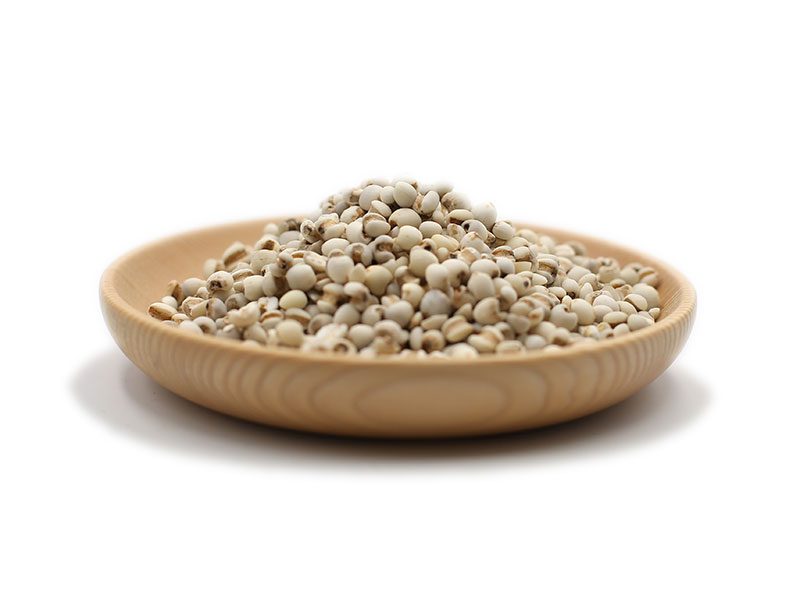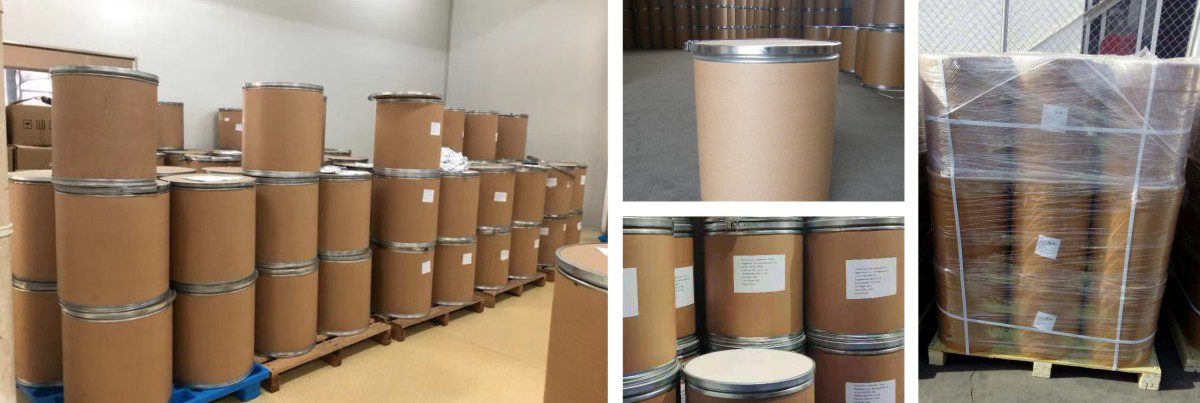Table of Contents
What’s Organic Coix Seeds?
Organic Coix Seed, also known as Coix lacryma-jobi or Job’s Tears, is a nutrient-dense, ancient grain that has been used in traditional medicine and cuisine for centuries. Grown organically, these seeds are a great source of plant-based protein, dietary fiber, vitamins, and minerals. Coix Seed is commonly used in Asian cuisine, functional foods, beverages, and herbal formulations due to its health benefits and versatility.
Production Process:
- Seed Sourcing: Organic Coix Seeds are sourced from certified organic farms.
- Cleaning and Sorting: Seeds are cleaned to remove any debris, stones, or foreign materials.
- Milling: The seeds are milled into a fine powder or ground to the desired size for further use.
- Quality Control: Each batch undergoes rigorous testing for purity, nutritional content, and organic certification.
- Packaging: After quality assurance, the product is packaged in food-grade, sealed packaging to maintain freshness and extend shelf life.
Key Features:
- Certified Organic: USDA and EU Organic certified, free from GMOs, pesticides, and synthetic fertilizers.
- Rich in Protein and Fiber: Contains around 10-12% protein and 12-14% fiber, providing essential nutrients.
- Low Glycemic Index: A great carbohydrate source for those seeking to maintain stable blood sugar levels.
- Antioxidant-Rich: High in polyphenols and other antioxidants, which help fight oxidative stress.
- Gluten-Free: Naturally gluten-free, making it suitable for individuals with gluten intolerance or celiac disease.
- Versatile: Can be used in various food and beverage applications, as well as traditional herbal remedies.
Specifications:
| Item | Details |
|---|---|
| Appearance | Small, oval-shaped, off-white seeds |
| Purity | 100% Organic |
| Moisture Content | ≤10% |
| Protein Content | 10-12% |
| Dietary Fiber | 12-14% |
| Carbohydrates | ~70% |
| Fat Content | ≤5% |
| Particle Size | 100% pass through 80 mesh |
| Shelf Life | 24 months when stored properly |
| Packaging | 20kg or 25kg food-grade bags |
Applications:
1. Food & Beverages
- Grain-based Products: Coix Seed can be ground into flour for use in baking products such as bread, cookies, and cakes.
- Soups and Stews: Adds texture and nutritional value to soups, stews, and broths.
- Porridges & Breakfast Foods: Used as a base for porridge or as a replacement for rice or quinoa in various dishes.
- Snacks: Can be roasted and added to snack blends or used as a topping for salads, granola, or yogurt.
- Beverages: Ground into powder, it can be added to beverages like smoothies, shakes, or traditional drinks such as Coix Seed tea.
2. Traditional Herbal Medicine
- Herbal Supplements: Coix Seed has been traditionally used in Asian herbal medicine for its detoxifying, anti-inflammatory, and anti-aging properties.
- Skin Health Remedies: Often used in natural skincare formulations to support clear and radiant skin.
- Detoxification: Commonly used in detox teas or herbal formulations to cleanse the body and improve digestive health.
3. Gluten-Free and Plant-Based Products
- Gluten-Free Flour: Coix Seed flour is a great gluten-free option for those with dietary restrictions, suitable for baking and cooking.
- Vegan Products: Provides a plant-based protein source, making it ideal for vegan or plant-based food products.
4. Functional Foods
- Weight Management: Can be incorporated into low-calorie, high-fiber functional foods that promote weight loss.
- Prebiotic Formulations: Supports gut health by acting as a prebiotic to feed beneficial gut bacteria.
5. Pet Nutrition
- Pet Food: Used as a natural ingredient in dog and cat food formulations, particularly for those with gluten intolerance.
Health Benefits:
- Supports Digestion:
- High fiber content aids in digestive health and promotes regularity.
- Blood Sugar Regulation:
- With a low glycemic index, Coix Seed is beneficial for maintaining stable blood sugar levels.
- Anti-Inflammatory Properties:
- Known for its ability to reduce inflammation, supporting overall wellness.
- Rich in Antioxidants:
- The polyphenols and antioxidants in Coix Seed help neutralize free radicals and protect cells from oxidative stress.
- Skin Health:
- Traditionally used in herbal formulations to support healthy skin and reduce acne or blemishes.
- Supports Weight Loss:
- Due to its fiber and protein content, it can help promote satiety, making it beneficial for weight management.
Why Choose Our Organic Coix Seed?
- Organic Certification: Grown and processed according to strict organic standards.
- Nutrient-Rich: Packed with protein, fiber, and essential minerals.
- Versatile Ingredient: Ideal for a wide range of food, beverage, and health applications.
- Sustainable Sourcing: Responsibly sourced from organic farms, supporting environmental sustainability.

